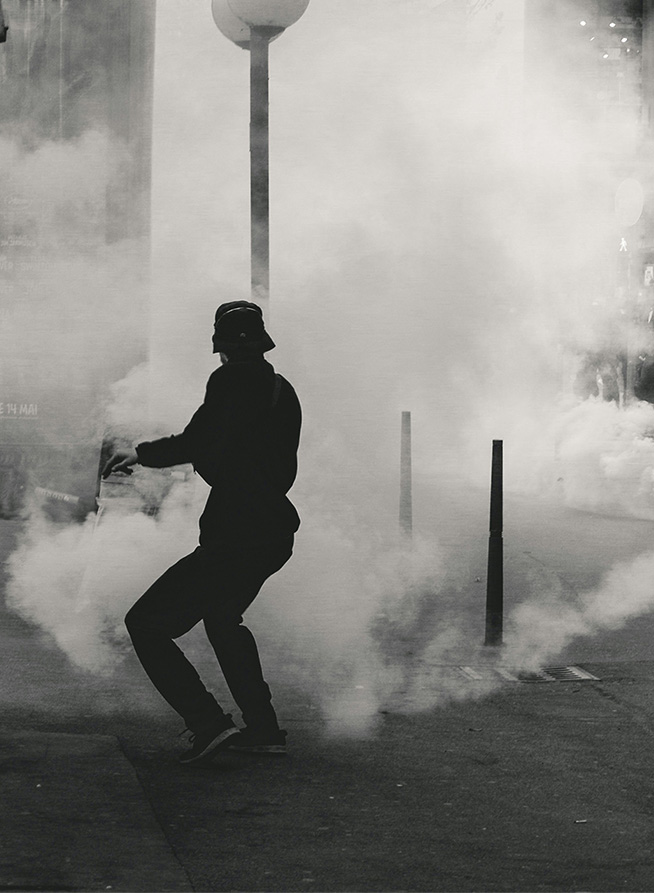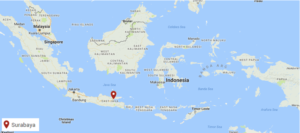Evacuations from High-Risk Locations Call +44 (0)1202 308810 or Contact Us →

Suicide Bombings Strike Three Indonesian Churches
13 May 2018
On 13 May 2018, suicide bombers attacked three churches in Indonesia’s second city, Surabaya. At least 13 people have been killed and more than 40 wounded. The attacks took place as Christians attended Sunday church services. The first attack occurred at Santa Maria Catholic Church around 0730 local time, with subsequent attacks at 0735 at the Indonesian Christian Church, and 0800 at the Pentecost Central Church. Two further attacks were reportedly planned but bombs failed to explode in those locations. Churches across the city were ordered to be evacuated and services will not be allowed to occur in Surabaya churches for the next few days. A food festival in the city was also cancelled due to security concerns.
Key Points
- At least 13 people have been killed and dozens wounded after suicide bombings at three churches in Surabaya, Indonesia.
- The attacks occurred on 13 May 2018 as worshippers attended Sunday services.
- Authorities have linked the bombings to a local Islamic State-inspired group.
Situational Summary
Terrorism: On 13 May 2018, suicide bombers attacked three churches in Indonesia’s second city, Surabaya. At least 13 people have been killed and more than 40 wounded. The attacks took place as Christians attended Sunday church services. The first attack occurred at Santa Maria Catholic Church around 0730 local time, with subsequent attacks at 0735 at the Indonesian Christian Church, and 0800 at the Pentecost Central Church. Two further attacks were reportedly planned but bombs failed to explode in those locations. Churches across the city were ordered to be evacuated and services will not be allowed to occur in Surabaya churches for the next few days. A food festival in the city was also cancelled due to security concerns.
Authorities in Indonesia have blamed the attack on a local Islamic State-inspired group, Jemaah Ansharut Daulah (JAD). Islamic State subsequently claimed responsibility for the attacks, with reports indicating that the members of one family were behind the bombings. A mother and two children blew themselves up at one church, while the father and three sons targeted the other churches. Some reports suggest that the family had been in Syria previously.
Solace Global Comment
Commentators have suggested that this the first time in around 10 years that a coordinated attack of this magnitude occurred in Indonesia. Many believed that Indonesia had been able to successfully control the militant problem which blighted the country after the turn of the millennium. This incident marks the deadliest attack since 2005 when three suicide bombings on the island of Bali claimed the lives of 20 victims. There has been an increase in regional Islamist militancy in recent years, which has been attributed to the rise of Islamic State.
This attack comes less than a week after a prison riot and hostage situation in Jakarta, Indonesia’s capital. The incident led to six fatalities as suspected Islamist militants demanded to see the self-proclaimed leader of Islamic State in Indonesia, Aman Abdurrahman, in a 36-hour standoff. Abdurrahman had been detained by police and is on trial for plotting an attack on the same prison. Many have linked the attacks in Surabaya to the prison riot. Separately, on 13 May, police said they had killed four suspected members of JAD in Cianjur, West Java.
This is not the first terror-related attack to have occurred at a church in Indonesia in 2018. Indeed, in February, several people were injured after an assailant armed with a sword attacked a church in Sleman, Yogyakarta. The attacker allegedly had links to Islamic State and previously tried to join the group in Syria. It is unclear if these attacks represent a developing trend in Indonesia; previously militants affiliated with Al Qaeda had sought to target civilians (including in Bali and Jakarta) but perhaps churches have become a greater focus for Islamic State-linked groups.
SECURITY ADVICE
TerrorismModerateTravellers are advised to expect enhanced security measures in public areas and those of infrastructural importance throughout Indonesia. The instructions of security officials should be adhered to immediately; noncompliance may be met with a forceful response. Extra travel time should be allowed for in order to mitigate the delays caused by enhanced security measures. All travellers to Indonesia are advised to maintain situational awareness and sensible security precautions. Travellers should consider avoiding churches in the area in case of further attacks.
If caught in a terror situation, travellers are advised to RUN – HIDE – TELL – FIGHT.
RUN – If in a location where gunfire or explosions are heard, leave the area or building by any safe and available exit immediately.
HIDE – If unable to run away, find suitable cover or barricade yourself in a room. Remember to silence your phone and turn vibrate off.
TELL – Inform emergency services or alert someone who is able to do it for you. Once police arrive, comply with their instructions and do not make any sudden movements.
FIGHT – As a last resort, if confronted with a gunman, it is recommended to fight back by using the element of surprise by shouting, screaming and running fast at the attacker. If sheltered with others, convince them to do the same and rush the attacker all at once. Ensure the person entering the shelter is the attacker and not law enforcement.
For travel to Indonesia, Solace Global would advise clients to employ additional security depending on the exact location of travel and the travellerâs profile. For all itineraries, the use of a travel tracking app with the ability to display an intelligence feed will assist employers to implement effective duty of care, and also permit the traveller to remain up to date with pertinent security updates.